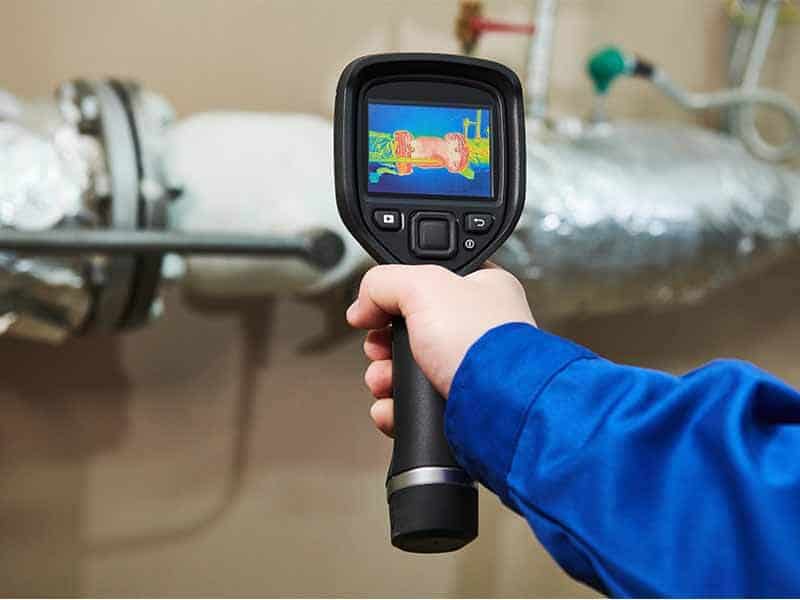
From cost savings to environmental sustainability, energy efficiency is the name of the game for all commercial facility systems—and HVAC is no exception. At React, we know the biggest factor businesses need to consider is cost. All other factors such as environmental stewardship are obviously desirable, but a lower cost solution is essential. We have the expertise to provide right-sized HVAC systems for commercial businesses that allow efficient operation and reduced energy use.
Will a New HVAC Save Me Money?
As with many things, the answer to this question is more complicated than a simple yes or no. Of course, a high-efficiency HVAC system is going to save money versus an older HVAC system, but equally important is the whole system design, engineering, and installation.
Here’s where your choice in HVAC provider makes a substantial difference: A firm without much experience servicing commercial facilities may purchase and install high-efficiency units, but unless those units are perfectly chosen for your particular facility, it’s impossible to maximize energy savings.
So, the short answer to the question above is “yes,” but it’s important to remember to work with an experienced and capable provider like React Industries.
High-Efficiency Heating and Cooling
The phrase “heating and cooling” implies that we’re talking about an entire system, not just a specific unit. The future of the HVAC industry lies in a firm’s ability to look at the whole picture, rather than just, “How can we get that furnace working right again?”
When a client comes onboard with React Industries, we take a consultative approach to their facility, determining what their heating and cooling needs are, the age of their current system and how can it be improved, what energy-efficiency regulations need to be met, and more. Owners of commercial facilities are often surprised by how much they could have been saving on energy costs.
Where We Were and Where We’re Going
For the vast majority of human history, keeping warm has been a matter of sticking close to the fire. Staying cool was almost impossible until the air conditioner was developed in the early 20th century, and it wasn’t until the 1980s that electric furnaces came into popular use.
These early systems weren’t what we would call “efficient” today, but there have been dramatic advances in HVAC technology in recent years. Looking forward, the industry, like many others, is facing an energy-efficiency revolution.
Cost is generally thought of as a barrier to achieving efficient and sustainable systems. But over time, energy-efficient systems actually end up paying for themselves.
What We Talk About When We Talk About Sustainability
Cost versus sustainability versus comfort and quality: These concepts are normally thought of as mutually exclusive. This couldn’t be further from the truth. While cutting energy bills, efficient HVAC systems are also a way to improve the environment outside and inside.
When most people hear phrases like, “a building’s carbon footprint,” there’s a bit of confusion. No, the building itself isn’t producing a large degree of carbon dioxide and spewing it into the atmosphere. What we’re really talking about is how much energy that facility is consuming and, therefore, how much energy (usually produced by coal) is being used to keep the facility running. When an HVAC system is more efficient, the building uses less energy—lowering costs and reducing damage to the environment.
Keeping Your System Efficient
The key to having an efficient HVAC system isn’t simply buying the right equipment and having an experienced installer and designer like React Industries put it together. That’s a good start, but energy efficiency is an ongoing process.
A preventive maintenance plan reduces the likelihood of future failures, large repair costs, and, of course, loss of efficiency. Preventive maintenance saves businesses money in the long run because small issues are caught before ballooning into catastrophic failures and system replacement work.
Give us a call today and we will come look at your existing system or can help develop plans for your new facility.